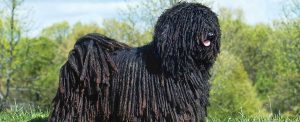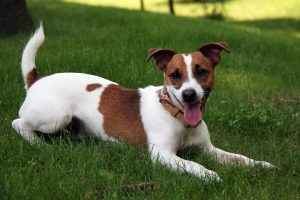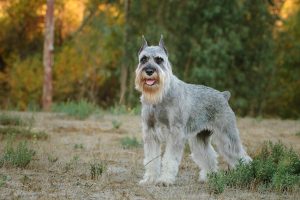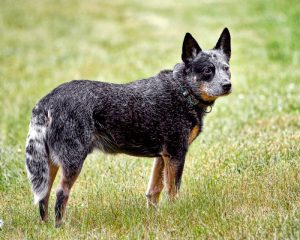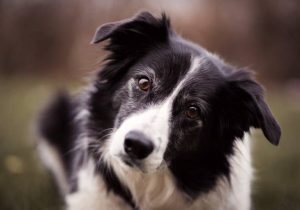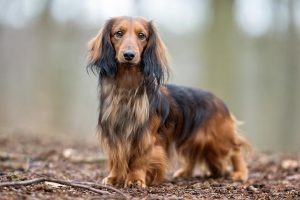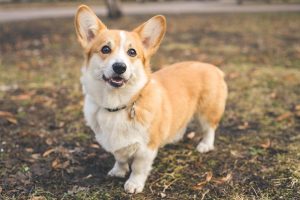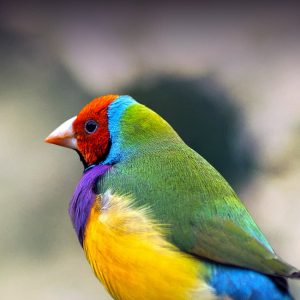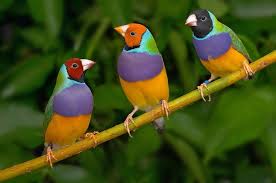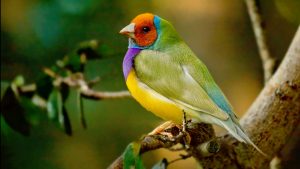
Farm dogs do more than just watch sleep – they are good at guarding, ratting, herding, and provide companionship. The best dogs blend in effectively with their charges, are attentive day and night, and defend livestock from predators. Are you looking for a farm dog for your rural homestead? Here is our quick guide on the best farm dogs.
But first things first.
What are the qualities of the best farm dogs?
If you have a small hobby farm, your dog should meet specific criteria.
- It should guide goats and sheep without being too aggressive
- Should be capable of guarding your house
- Not interested in running off
- Will not chase the chicken
- Can spend quality time with friends after work
Best breeds of dogs for a farm

Golden retriever
The golden retriever was originally bred as a hunting dog. But because of its intelligence and obedience, it excels well on the farm. The history of this farm dog dates back to the 19th century. However, it has been cross-bred with other breeds to become what it is today.
The golden retriever stands at 23-24 inches tall and can weigh up to 75 pounds. Also, these dogs have a thick undercoat, which makes them thrive in cold environments.
In terms of personality, the golden retriever is in its league. It’s gentle and has a well-mannered personality. It will bark at your sheep and will behave well when around chickens.
And because it has lots of energy, it excels well in most farm activities. Besides being a great hunting dog, it’s a friendly family companion. The life expectancy of this hunting dog is estimated to be around 12 years. If you’re looking for an easy training dog, the golden retriever is a good fit.

The Australian shepherd
This dog breed helps shepherds work for a long time. Because of their unique personality, they do a great job of moving your herd from one pen to another. This dog farm is versatile, easy to train, and intelligent. Also, Aussies make a good family companion. If you want them to learn everything about your farm, you should train them early.
While there’s no clear information about the origin of the Australian Shepard, historians believe that the breed originated from Australia. Another theory states that the dog originated from Spain. While there is probably no truth in such statements, this dog breed has been working on American farms for centuries. Some of the characteristics of this dog breed include:
- The outer coat has a wavy texture
- The quantity of fur varies with the climate
- Can be of a combination of colors like amber, hazel, or shades of brown
- The coat coloring can be blue, black merle, or red
- Can have white markings on the face, chest, and rear legs
- The average weight is 50-60 pounds
- The life expectancy is around 15 years
- Requires occasional combing or grooming
If you’re interested in a daytime dog farm to follow you as you ride the horses, you can’t go wrong with this breed. Be sure to discuss health screening to ensure the dog is genetically sound. Injuries do happen around the farm, but for this breed, you should expect little vet care.
Aussies are very territorial, so if a stranger comes to your farm, he or she is likely to be bitten. The only downside with this dog breed is it has a high prey drive. Of course, you don’t want to leave it around your chickens.

The Great Pyrenees
Despite the widespread use as a family pet, The Great Pyrenees is designed to protect and calm livestock. If well trained, it will spend time with the sheep. It’s also a great farm dog for those trying to raise their livestock in the yard.
Initially, this dog used to live a solitary life. Also, it’s an independent thinker, so you don’t want to boss around the whole day. If there are any perceived threats, the dog will bark aggressively. It will climb and follow flocks up.
If your farm is in a somewhat urban area with many off-leash dogs, then this dog is a great choice. Keep in mind that this farm dog will often chase away intruders.
The Puli
The Puli can work with the livestock the whole day – and will not chase chickens. Being a small breed, it may not be the best farm dog to go on a trail ride. Also, if you have large livestock they can easily get bored.
An adult will weigh about 25 pounds. These dogs also have V-shaped ears, flat back, round feet, and a domed skull. But its true defining feature is the soft undercoat. The curls are also waterproof.
Puli is friendly but can be harsh to strangers. And this is the reason why they are a great watchdog. Besides that, this farm dog is social with children. When it comes to care and maintenance, this breed will not demand a lot from the farmer. You just have to bathe the dog occasionally.
Puli is an intelligent dog that requires consistent training. If your farming activity is herding, this breed will enjoy agility when walking around the neighborhood.
Jack Russel Terrier
While this may look like a small farm dog, it has a big personality. Jack Russel Terrier has lots of energy and is great for catching rodents on the farm. So, if you have some raccoons or mice, the dog will do a perfect job.
Just like other farm dogs, the Terrier is good with children. However, it will tolerate harassing or teasing, or any mistreatment. During puppy age, these dogs tend to be destructive, so you may want to be careful. This farm dog can be challenging to train, but there are many ways you can enjoy their intelligence.
Nevertheless, they like to spend a good day out and enjoy being in the company of their favorite person.
Jack Russel is an excellent farm dog because it considers rodents as prey. For this reason, you should avoid keeping it with guinea pigs, hamsters, gerbils, etc. Other reasons why you’ll love this dog include:
- Minimal grooming needs
- Few health problems
- Endurance
- Athleticism
- Tenacity while at work
- Tidy habits
The Standard Schnauzer
This is the best breed for your backyard farm – it’s gentle, sociable, and trainable. Despite its decent size, this farm dog will not be pushed around the livestock. This dog will have some prey drive but will not harm your chicken.
The Schnauzer is hardworking and has a whiskered chin. Today, this breed can be trained for special skills like bomb-sniffing, and therapy. No matter the training you give the dog, you can be sure it will follow religiously. For successful training, you should introduce treats. Plus, you have to be very patient.
Another notable characteristic of the schnauzer is the double coat. The outer coat is rough to the touch, and this is what you need when going out there.
This farm dog is overprotective if it sees other dogs. If you have your family around, you don’t have to worry about the safety of your kids. They have a unique personality, especially if they know the kids from childhood.
The standard schnauzer is an energetic dog that likes to exercise for many hours a day. Therefore, you should introduce a mix of long walks, running, play sessions, and advance training.
Some of the specific concerns about this dog breed are:
- The owner has to set boundaries
- They can get destructive when bored
- Socialization is critical
- Their coats require regular brushing
The Australian cattle dog
The Australian cattle dog is known for driving cattle over long distances. Also, referred to as healers, the farm dog is the perfect candidate for every farmstead. This breed was used by Australian hunters to guard expansive ranches but they are still used as herding dogs. Because they can tolerate a lot of pain, dog owners should watch for signs of injuries. Don’t be surprised to find them in the care of rescue groups.
More interestingly, these canines need a lot of exercises, so you don’t want to keep them in confined places. And because they are territorial, the Cattle dogs can be a great watchdog. However, they will be fascinated by cats, squirrels, and other small animals. If you plan to raise the dog with other pets, you can be sure they will live peacefully.
In terms of adaptability, the Australian cattle dog has some unique characteristics. It has high sensitivity, tolerates being alone, and is great for any weather. The agility and obedience of this dog are unmatched. Other characteristics are:
- Hard double coat
- The coat color is blue
- Muscular and athletic
- Can weigh up to 50 pounds
- A male can grow up to 20 inches high
Border collie
The Border collie is arguably one of the finest shepherding dogs. It’s preferred by many farmers for the unique working ability rather than appearance. In addition to that, it can work independently so you don’t have a problem leaving it around your farm. They use their eyes to control the sheep and other livestock. Best of all, their ethic is incredibly strong.
It’s believed the first breed originated from England or Scotland. The farm dog features a soft coat that is smooth and wavy. An adult can measure 22 inches (height at the shoulder) and weigh up to 45 pounds. The breed can also live up to 25 years.
Looking at maintenance, you don’t expect to do too much. You need to control the shedding of hair and do regular brushing. Avoid bathing it regularly as this can remove the oils on the skin. His love of the outdoors is sentimental for any farm size.
Dachshund
Known for its unique badger hunting skills, the Dachshund is a must-have on your large farm. It’s commonly used by many farmers for the impressive catching skills for rabbits and prey. They are also great vermin catchers and make good watchdogs.
The farm dog enjoys running up and down the hills and can be helpful in sheep yards. Despite the small size, the Dachshund can get around at speed.
Dachshund is very selective in their hearing. But they are royal, intelligent, and brave. But one of their biggest strengths is that they know how to steal people’s hearts. And that’s why they can be a delightful addition to your family.
On the downside, this farm dog can be destructive. You’ll find it digging around the fence or getting into the kitchen coop. Don’t get mad if you find the dog in your vegetable patch.
The reason why you should give this little dog a thumbs up is that the legs are forced to do twice the other dogs do. Other characteristics you should keep in mind include:
- Can weigh up to 32 pounds
- Can grow up to 9-inches high
- Has a long-haired coat
- The colors can range between black, tan, chocolate, and more
Pembroke Welsh corgi
This is arguably the shortest herding breed known. It gained popularity after being associated with Queen Elizabeth 2. Originally, this bread was used to keep free-range chickens, geese, and ducks.
These dogs are smart and will do the tedious of looking after your farm cattle a breeze. Also, they are prolific alert barkers and can be a bit wary of strangers. They also have an incredible nose to detect diesel fuel and diesel parts. But you can stop any unusual barking by training it to do it only when there’s an impending danger.
That’s not all – the dog will keep your farmyard away from predators. If it sees a challenge, he calls for help.
Even if your corgi is not trained, it will enjoy the joy of being around your cattle.
The physical characteristics of this breed are black coat, with white and sable markings. On the other hand, the ears are erect pointy while the tail is pointy. It weighs about 40 pounds and can grow up to 12 inches.
Historically, the dogs were used in wales to graze with livestock. And because it enjoys the company of the owner, this is the best dog to have around your farm. To ensure your farm dog remains in tip-top shape, regular grooming is a must – it helps remove the mats and dead hair.
Despite the few drawbacks, the unwavering support of this dog to your farm is unmatched.
Now you know the best farm dog. If you bring the above breeds to your farm, they will be worth the time.
